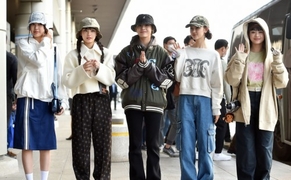 |
AsiaToday reporter Lee Ji-sun
The Monetary Policy Board of the Bank of Korea (BOK) decided to raise its key rate to 0.75 percent from 0.5 percent, ending the era of the record-low interest rate. BOK Governor Lee Ju-yeol said there have been side effects of liquidity expansion, such as demand for excessive profit from debts. In order to cope with financial imbalances, the central bank said it is time to normalize monetary policy by raising its key interest rate.
The BOK governor hinted at an additional rate increase within this year, saying that the BOK took a “first step” toward normalizing interest rates. He explained that the interest rate is still low compared to the real interest rate. If major countries such as the United States introduce belt-tightening monetary policies, the BOK is highly likely to follow and raise the key interest rate further.
The central bank’s monetary policy board held a rate-setting meeting on Thursday and voted to raise its key rate by 0.25 percentage point to 0.75 percent. Lee said the decision was based on the country’s economic recovery, rising inflation and worsening financial imbalances as the record-low rate of 0.5 percent has been maintained for over a year.
“The global economies continued to recover thanks to the expansion of vaccinations in major countries and easing restrictions on economic activity. The domestic economy also continued its recovery,” Lee said. “The recovery trend is likely to continue as private consumption is forecast to improve, affected by the expansion of vaccinations and the execution of a supplementary budget, while exports and investment are expected to sustain their buoyancy.” As a result, the GDP growth rate for this year is expected to remain at the 4% level, which was projected in May.
The board observed the fact that the inflation rate rose as liquidity expanded due to the 15-month-long interest rate freeze. “The rate of increase in consumer price inflation has risen to the mid-2 percent range due to the continued upward trend in petroleum and agricultural, livestock and fishery product prices, and the expansion of service prices,” the BOK governor said. “This year’s consumer price inflation is expected to rise to the low 2 percent range, higher than the May estimate of 1.8 percent, while the core inflation rate is expected to be in the low 1 percent range.”
In particular, the increase in household loans and the upward trend in housing prices continue to grow. Bank loans to households rose 9.7 trillion won in July, and house sales prices rose 9 percent. “Raising the key rate raises costs for economic players and lowers risk appetite, therefore we expect the rate-hike decision to curb household debts and help stabilize home prices,” Lee said.
The BOK expressed confidence over economic players’ capability in debt payments and extra cash saved, denying the risk of the domestic economy falling into a debt trap. “However, intensive support is needed for vulnerable groups, including households with high borrowings and companies experiencing difficulties in business operation,” he added.
The central bank hinted that it may raise the key rate later this year. The phrase, “We will maintain the accommodative stance of monetary policy,” was deleted in the post-decision statement. Instead, it stated, “We will review the timing of further adjustment of the degree of easing.”
The BOK “will gradually adjust the degree of monetary policy accommodation,” and the board “will judge when to further adjust the degree of accommodation while thoroughly assessing developments related to COVID-19, changes in the pace of growth and inflation, the risk of a buildup of financial imbalances and monetary policy changes in major countries,” the statement said.
#Bank of Korea #interest rate
Copyright by Asiatoday
Most Read
-
1
-
2
-
3
-
4
-
5
-
6
-
7





















